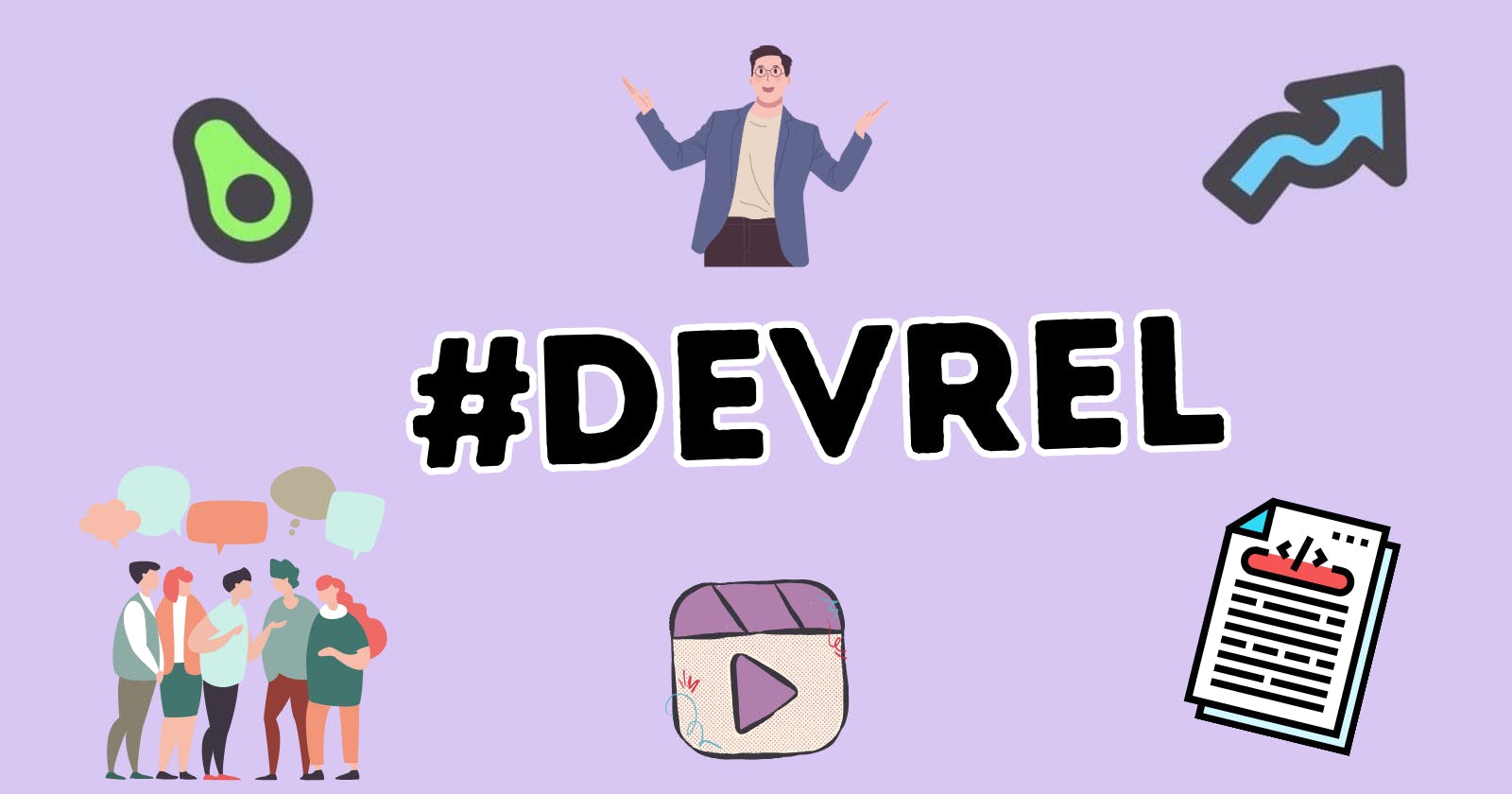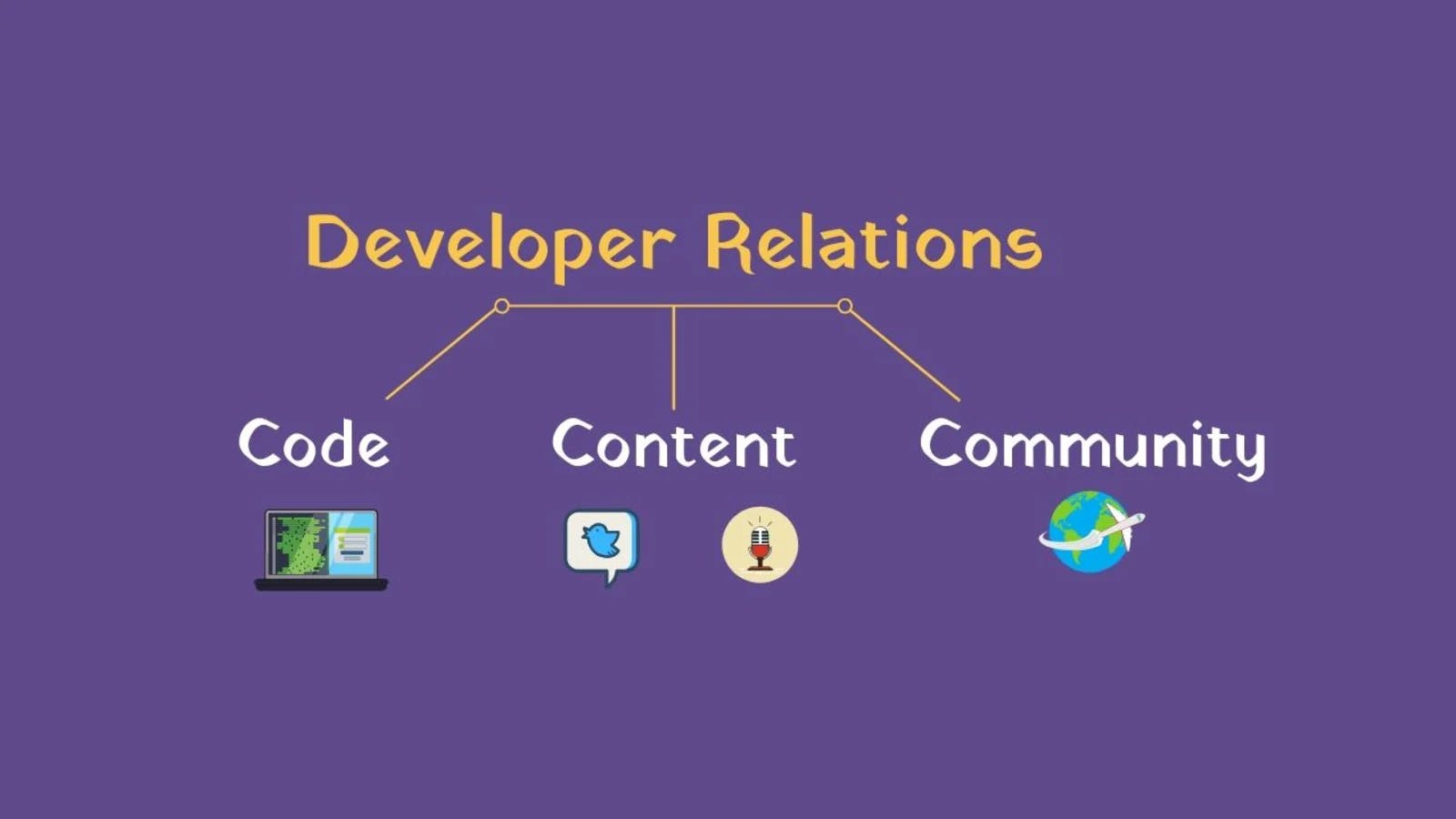As community management continues to expand, a rising subset of roles is gaining prominence: Developer Relations, often referred to as DevRel.
But what exactly is DevRel or Developer Relations? "It's community management for developer communities," says Michael Tharrington, Senior Community Manager at Forem.
What is Developer Relations?
Developer Relations (DevRel) is an interdisciplinary role that sits in a border space between product, engineering, marketing, and community.
Developer Advocates play a crucial role in educating developers about a particular product or technology. They achieve this by fostering community engagement, generating content, and enhancing the overall developer experience of the product. They often manage communication channels between organizations and developers, facilitating a smoother flow of information and feedback. This ensures an enhanced experience and growth trajectory for both entities.
Why Developer Relations?
From one company to another, the role of Developer Relations can vary significantly. For instance, Company X may engage the DevRel team to promote the adoption of their API, while the Y Corp team could be focused on enhancing the company's innovation through collaboration with external developers.
DevRel acts as a bridge between development and operations teams. Those with good multitasking skills, coding proficiency, and a marketing approach can excel in DevRel. Many aspire to join DevRel, but it's crucial to understand its fundamentals and purpose before making a decision.
In both B2B and B2C companies, DevRel plays a vital role in engaging communities and developers to enhance products. As companies create more products, DevRel manages communication, fostering relationships between the community and developers. Understanding the importance of DevRel is key to deciding why it matters.
4 Pillars of Developer Relations
For those familiar with DevRel, you might think of it as casual meetups, company giveaways, and online content. However, just like marketing extends beyond advertising, DevRel encompasses more than just creating awareness.
Despite varying viewpoints on terminology, DevRel involves four interconnected areas, going beyond surface-level associations to play a multifaceted role in fostering developer relationships and collaboration.
Developer Marketing: Find developers interested in a product and make sure they have the info and tools to decide wisely.
Developer Enablement: Ensuring developers have everything they need for success with the product.
Developer Advocacy: Advocating for and connecting developers with the organization.
Developer Community: Fostering continuous collaboration among developers for shared goals related to your product or organization.
4 C's of Developer Relations
The Four C's of DevRel (Developer Relations) encompass the essential elements for a successful program: Code, representing technical proficiency, Context, understanding the target audience, Collaboration, building relationships with developers, and Creative, fostering innovation and creating engaging content.
The First C: Coding
To run a successful DevRel program, individuals must have coding skills. Understanding and being able to code allows them to establish credibility within the developer community and effectively relate to the daily challenges and needs of developers. Without technical expertise, a DevRel team may be perceived as lacking depth and appearing more focused on marketing rather than providing valuable technical support and insights. Coding proficiency is a fundamental requirement for building trust and credibility in the developer relations role.The Second C: Context
To run a successful DevRel program, it is crucial to understand the industry, trends, and target audience. This includes staying up-to-date with emerging content trends and anticipating the needs of developers. Having a balanced approach, where coding expertise is complemented by other DevRel responsibilities, is important. Moreover, having team members with proficiency in multiple programming languages ensures inclusivity and better caters to the diverse needs of developers. Understanding the context allows DevRel teams to connect with developers on a human level, provide valuable resources, and foster strong relationships within the developer community.
The Third C: Collaboration
Community Engagement& Collaboration is an essential component of DevRel programs, emphasizing effective collaboration with various internal teams and external stakeholders. DevRel professionals must be team players, working cross-functionally with marketing, product, engineering, and design teams to ensure a strong developer experience (DevEx).
In addition to internal collaboration, maintaining a close connection with customers and developers is crucial. Direct communication with developers to gather insights and feedback, as well as engaging with customers and end-users, is highly valued. When building a DevRel team, selecting individuals comfortable interacting with the external community, and having a presence on social media or other relevant communities, can be advantageous. Successful collaboration and community engagement lay the foundation for a thriving DevRel program.The Fourth C: Creative
The ability to be creative is essential in DevRel, particularly in the realm of content creation. While perfect writing skills are not necessary, it is important to have an interest in creating and effectively communicating ideas through different mediums like blogs, videos, podcasts, and more. The emphasis lies in thinking innovatively and being open to experimentation, allowing for fresh and engaging content that resonates with the developer community. A creative mindset adds a unique touch to DevRel, enhancing its impact and effectiveness.
These Four Pillars of DevRel encompass coding ability, contextual understanding, collaboration, and creativity. These pillars ensure technical expertise, industry knowledge, effective teamwork, and innovative content creation, forming the foundation for a successful developer relations program.

Common Roles
There are various career opportunities within DevRel, and while the specific job titles may differ, the underlying work remains similar. Some common roles include:
Developer Advocate
Community Manager
DevEx Engineer
Content Creator
Technical Writer
Developer Evangelist
Community Champion
Developer Marketer
Prominent Roles in DevRel:
Developer Evangelist
Developer Advocate
Developer Experience
Developer Marketing
The prominent roles in DevRel, including Developer Evangelist, Developer Advocate, Developer Experience, and Developer Marketing, play crucial roles in building relationships with developers and promoting a company's platform. Developer Evangelists focus on creating buzz and raising awareness through public speaking engagements and online content creation. Developer Advocates act as liaisons between the developer community and internal product teams, ensuring developers' needs are met and providing support.
Developer Experience teams prioritize creating a seamless and user-friendly experience for developers, owning onboarding flows and documentation. Developer Marketing plays a key role in attracting developers through inbound marketing strategies and targeted content syndication. These roles collectively contribute to the success of a DevRel program, fostering developer engagement and driving growth for platform companies.
Responsibilities as a Developer Advocate
1. Technical Education: Developer Advocates create educational content and resources to help developers understand and utilize the company's technology stack effectively, simplifying complex concepts and providing hands-on examples.
2. Advocacy: Developer Advocates represent the developer community within the organization, advocating for developers' needs and feedback. They attend conferences, events, and meetups, showcasing the company's technology and fostering collaboration.
3. Feedback Loop: Developer Advocates gather feedback from developers and relay it to the product teams, ensuring that the company's products align with developers' requirements and expectations.
4. Community Building: Developer Advocates engage with developers through online forums, social media, and local meetups, fostering a sense of community and collaboration among developers.
5. Content Creation: Developer Advocates create valuable content such as blog posts, videos, and webinars to disseminate knowledge, share best practices, and keep developers informed about the company's offerings.
6. Technical Support: Developer Advocates provide technical support and guidance to developers, helping them overcome challenges and ensuring a positive developer experience.
Conclusion
In my perspective, Developer Relations (DevRel) is not merely a job; it is a philosophy. It is not a role that you consciously decide to pursue one day, but rather something that evolves naturally as you engage in activities like assisting fellow developers, creating valuable content, supporting communities, and mentoring others. Eventually, you realize that you are already embodying the principles of DevRel. DevRel is undoubtedly one of the most fulfilling roles in the tech industry, and I encourage more individuals to embark on this path and experience its rewards. May you take your first steps towards DevRel and contribute to the growth and success of developer communities in the near future.

